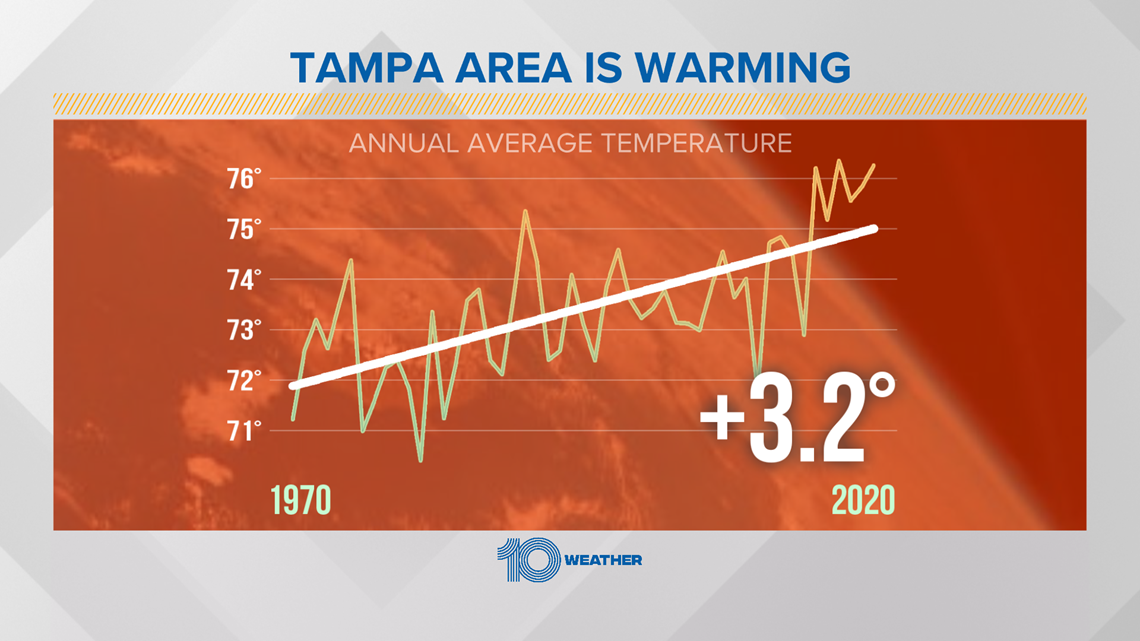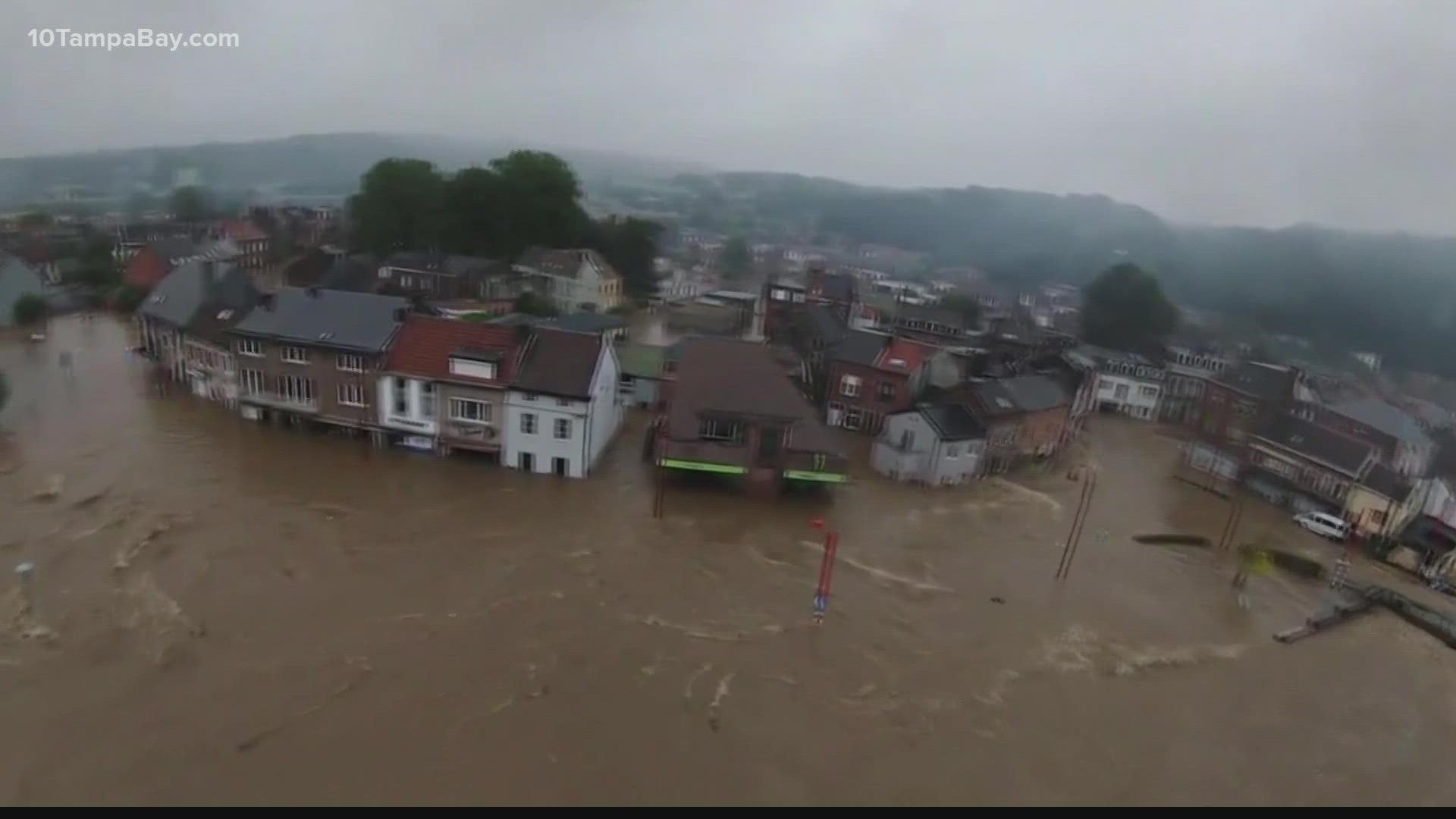TAMPA, Fla. — The recent authoritative Intergovernmental Panel on Climate Change (IPCC) report published this week presented a world that is barreling toward a future far warmer than what scientists previously predicted.
The report cut right to the chase, calling human-caused climate change "unequivocal" and forecasts temperatures that will blow past what world leaders were hoping to prevent in the next decade.
In each scenario presented, global temperatures were expected to be 1.5 degrees Celsius (2.7 degrees Fahrenheit) above pre-industrial levels by the 2030s. Such temperatures can mean different things for different parts of the globe, but what does that mean for us here in Tampa Bay?
The Tampa Bay region has seen its average temperatures steadily increase since the 1970s. As of 2020, the average temperature over the last 50 years has warmed by 3.2 degrees Fahrenheit. Those temperatures will only continue to inch higher and higher within the next 10 years or so.
"While a tenth of a degree of warming may not sound like much, it greatly impacts sea-level rise, extreme weather events and simply makes life for humans and nature worse," 10 Tampa Bay Meteorologist Natalie Ferrari says.


And extreme weather events in Florida don't just mean stronger hurricanes or tropical storms.
University of South Florida Professor of Geosciences Tim Dixon says that would also include "rain bombs," severe rainstorms that can flood areas in several inches of water within an hour.
It also would mean stronger heatwaves and drought. Dixon adds it's not out of the realm of possibility that Florida could see the same type of wildfires that have ravaged the western part of the country.
Florida's fire season runs from about March until the beginning of the rainy season, usually late May or early June.
None of this is new, however. Scientists have been predicting the impact climate change will have on Florida for years.
In 2019, a report by the Tampa Bay Climate Science Advisory Panel projected sea levels across the region would rise by nearly 2 to 8.5 feet by 2100. With the latest IPCC report, those projections may just happen a little sooner.
"Scientists have been writing these reports for three decades," Dixon says. "Now the chickens have finally come home to roost. It's not going to get any better."
It's not all doom and gloom, though. Dixon says while the IPCC report is an overview of the entire globe, there are ways to lessen the inevitable blow locally.
Having local industries, like coal and gas, cut back on carbon emissions wouldn't solve the issue, but it would help to significantly reduce air pollution. Dixon says, eventually, we'd have to ditch any form of energy that isn't clean.
An emphasis could also be placed on conserving Florida's coastal wetlands since they naturally capture and store carbon that is in the atmosphere.

